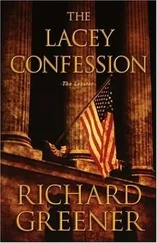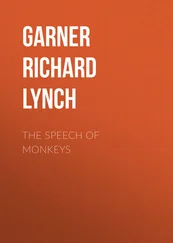Richard Greener - The Knowland Retribution
Здесь есть возможность читать онлайн «Richard Greener - The Knowland Retribution» весь текст электронной книги совершенно бесплатно (целиком полную версию без сокращений). В некоторых случаях можно слушать аудио, скачать через торрент в формате fb2 и присутствует краткое содержание. Жанр: Триллер, на английском языке. Описание произведения, (предисловие) а так же отзывы посетителей доступны на портале библиотеки ЛибКат.
- Название:The Knowland Retribution
- Автор:
- Жанр:
- Год:неизвестен
- ISBN:нет данных
- Рейтинг книги:5 / 5. Голосов: 1
-
Избранное:Добавить в избранное
- Отзывы:
-
Ваша оценка:
- 100
- 1
- 2
- 3
- 4
- 5
The Knowland Retribution: краткое содержание, описание и аннотация
Предлагаем к чтению аннотацию, описание, краткое содержание или предисловие (зависит от того, что написал сам автор книги «The Knowland Retribution»). Если вы не нашли необходимую информацию о книге — напишите в комментариях, мы постараемся отыскать её.
The Knowland Retribution — читать онлайн бесплатно полную книгу (весь текст) целиком
Ниже представлен текст книги, разбитый по страницам. Система сохранения места последней прочитанной страницы, позволяет с удобством читать онлайн бесплатно книгу «The Knowland Retribution», без необходимости каждый раз заново искать на чём Вы остановились. Поставьте закладку, и сможете в любой момент перейти на страницу, на которой закончили чтение.
Интервал:
Закладка:
“Take it easy everyone,” Tom said. “We have topnotch people on this. But, frankly, they have to know who to go after. We can’t tell them that. This is not something these people usually do. Finding out who they’re looking for may be a little beyond their scope.”
“Five hundred grand, and it’s ‘a little beyond their scope’?” Nathan’s voice was screeching with frustration, and Tom was certain anger had ignited the fires of Nathan’s uncontrollable fear.
“Take care of them…?” Louise said. “Does that mean-”
“Damn well better mean that,” Pitts said. He mumbled something foul.
Tom delivered his next line to Louise. “Nathan is justifiably disappointed. I’m disappointed myself. The people I’ve hired have not been able to identify our man. Once we have him identified and know where he is, I’m sure they’ll do as expected. And that’s really why I’m a little late. Before I left the city I made a few phone calls.”
All three were leaning forward now: Wesley hoping Tom had it locked at last; Louise feeling snug at the center of things; Nathan turning again to his only friend. Tom met each set of eyes and said, “I want to tell you about a guy. His name is Walter Sherman.”
New York
Isobel Gitlin had celebrity thrust upon her, and she did not like it a bit. At least, not at first. The Moose tried to counsel her. “Let them see you and get it over with,” he said. “These things have a shelf life of a day and a half. Go with it. Let it happen. Before you know it, it’s over.” She rejected his advice. She thought it was stupid that anyone would make her a part of the story of the E. coli disaster and the deaths that now seemed to follow. “It’s nonsense,” she told Gold. He followed her wishes. He held out for a while, demanding that the Times withhold her photographic image. That lasted a week, during which time the cable networks filled their empty afternoons with experts, some of whom actually claimed to know Isobel Gitlin, and they offered up details to which they considered the world entitled. Things changed when a former boyfriend sold an old but flattering photo to the New York Post. Murdoch’s New York newspaper front-paged her face with the headline, “What Does Isobel Have to Hide?”
Isobel glumly watched a local TV report from a Manhattan perfume store she’d never heard of, where the girl at the counter described the fragrance advice she’d given Isobel just last week. A determined flock of paparazzi formed, not in the same league with the Jackie O/Princess Di eras, but large enough to frighten a normal person. The absurdity of it all amazed Isobel. Nevertheless, a friend procured a bag of discounted wigs from a Borough Park store for Hassidic women. Isobel wore a different one every day, and a blue jean jacket, and that was all it seemed to take.
She thought it all ridiculous. But lest Isobel miss any subtleties, Mel explained the dynamics: her week of faceless celebrity had tantalized the marketplace, precipitating, once the picture was out, a near-hysterical gathering of “the birds of the air.” That’s how the Moose always referred to television “journalists.” The hook for the story was, of course, her investigative reporting: the link between the murders and the plague. That positioned endless replays of the desolation of the South by the mighty marauding E. coli bug. Television ran with it as if it were Sherman’s Second campaign. They disinterred the grief of those days like fresh meat and served it up all over again with Isobel Gitlin as gravy. Cable wouldn’t let it rest-not as long as the story pumped revenues. And the regular networks could not but follow. Thus was Isobel informed that she ought to go on TV. Management said she really ought to do it for the Times, for herself. She ought to do it. Period.
Upon hearing that, the Moose advised: “Too late, kiddo. You might have smiled at the assholes and gotten rid of them in the beginning, but not anymore. You need a war or some particularly gruesome celebrity murder to get the dogs off your behind now. You’re the flavor of the month, and they all want a lick. You do it now and it won’t be pretty.”
“How about tolerable?” she said. “Can I d-do that?”
The Moose said, “Well, nothing lasts forever. They want their pound of flesh, and when they get it they’ll be done with you. Make a list of words you can manage. You know what I mean. Say them out loud a few times. Put together some sentences. Then, when you go on the air, repeat them a lot. Doesn’t matter what they ask. Just say the things you’ve practiced. That’s what everybody does. If it gets to be too much, just look at the camera,” he chuckled, “and say: ‘F-fuck you!’”
“Thank you. Th-thank you very much,” she said in her best imitation of the King. The Moose had not offended her. She worked on her delivery in a studio owned by the paper. To her astonishment, the camera helped control her stutter. She planned to write a piece on that, perhaps with a neurologist.
Her story, with her picture, made the cover of Newsweek and an inside, double-page feature in Time. Totally fabricated stories appeared in respected publications describing Isobel’s role in briefing the FBI, advising the mayor of Boston, consulting with Houston’s Commissioner of Police. There was gossip about a book deal, a movie, an HBO special. The info-tainment shows and one especially sleazy tabloid linked her with rock stars, actors, athletes, even an in-your-face lesbian poet.
The paper had gone through tough times. Management saw in Isobel a chance to recoup intangible losses, the slippage in prestige that sloppy and fraudulent reporting will bring on. If Isobel Gitlin had made the Times the new leader in investigative reporting, they were happy to run with it. Her face and legend inspired an instantly devised subscription promotion theme: her image appeared on posters advertising the Times in subways and bus stops. Her salary increased commensurate with her new private office upstairs and an Administrative Assistant. She was told to consider herself “at-large,” and report to Gold for the moment. He had her continue to hunt up additional angles on the E. coli story-fly here and there, peer under rocks, and, above all, scour the Internet. In an industry that looked to generate heat, she was boiling. Her father warned her, “Boiling water evaporates, my dear.” And something told her to hold off on getting an agent.
She invited the Moose upstairs for tea. She did not expect him to be impressed, or contemptuous, and he wasn’t. She did not expect him to hand her a lecture on what was bullshit and what was not, and he did not do that either. What surprised her was his certainty that she’d soon be back in the basement or on the street. He could not lay out a scenario, but reported this news from deep in his world-weary gut. Isobel did not doubt him for a moment. “Evaporate,” her father had said.
Her descent began with the arraignment of Harlan Jennings for the murder of Floyd Ochs. Isobel felt the chilly winds blow the morning the first reports hit the AP. Macmillan and Gold were upstairs moments later. Her door slammed behind them. If Ochs was killed by a redneck named Harlan Jennings, a shit-kicking peckerwood unconnected to Hopman or MacNeal, or anyone sickened by meat-borne E. coli-all of which seemed to be the case-then Ochs’s murder could not be tied to Hopman’s or MacNeal’s. The three-by-one murder story was dead. As for Hopman and MacNeal, they had business dealings, yes. But those involved many diverse ventures, which implied a sprawling universe of potential satisfaction seekers. They could be anywhere. Maybe a vengeful or a chemically imbalanced ex-employee did in Hopman and/or MacNeal. Possibly it was someone-anyone-who had been let go, downsized by one of his or her takeovers. Somebody who, perhaps after losing his or her job, had to pull the kids out of private school or move to a lesser neighborhood; someone whose life went bankrupt in a very bad way. “Why not?” inquired the Moose. Hopman and MacNeal had those and other abuses in common. Without the E. coli angle the thing fell flat. The question facing them all right now-and facing their Olympian betters-was sadly and simply this: had Isobel Gitlin made the New York Times a laughing stock again?
Читать дальшеИнтервал:
Закладка:
Похожие книги на «The Knowland Retribution»
Представляем Вашему вниманию похожие книги на «The Knowland Retribution» списком для выбора. Мы отобрали схожую по названию и смыслу литературу в надежде предоставить читателям больше вариантов отыскать новые, интересные, ещё непрочитанные произведения.
Обсуждение, отзывы о книге «The Knowland Retribution» и просто собственные мнения читателей. Оставьте ваши комментарии, напишите, что Вы думаете о произведении, его смысле или главных героях. Укажите что конкретно понравилось, а что нет, и почему Вы так считаете.











